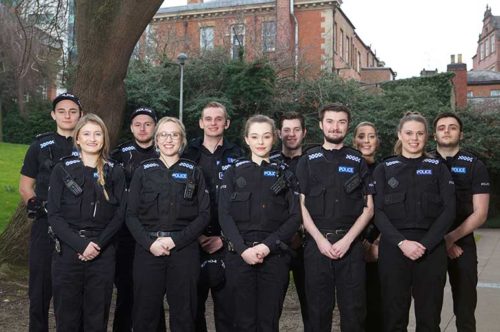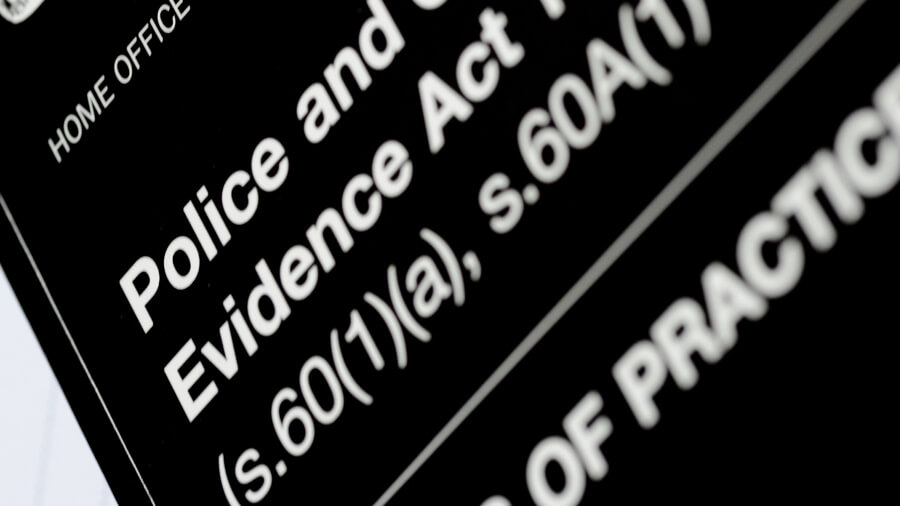Overview
Our Criminal Investigation and Policing Studies course can teach you the skills to become a professional practitioner in the public or private policing sector.
This programme is the ideal choice if you’re interested in studying policing or criminal investigation but do not necessarily wish to pursue a career in the police service. This provides opportunities for you to pursue a career as an investigator or intelligence officer in other law enforcement agencies.
Taught by policing and criminology academics with substantial experience of criminal justice practice, in the first year you will get an introduction to criminology and the profession of policing, as well as learn how to research in the crime and justice sector and gain an understanding of the criminal justice system. In years two and three, you will study topics covering the leadership and management of contemporary issues in policing, research for effective practice and multi-agency working, as well as complete a dissertation on a subject of your own choice. Both years will have a bespoke progressive investigation taught module, which is designed to develop your critical understanding of operational and critical incident investigations within public and private law enforcement agencies and within the Criminal Justice System.
Key features
-
- This programme is taught by experienced practice-based policing and criminology academics and researchers, who will help broaden your understanding of the sector while keeping you up to date with contemporary issues and debates.
- You will study a range of modules including Introduction to Criminology, The Profession of Policing, Leadership and Management of Contemporary Issues in Policing, and Multi-Agency Working.
- Take advantage of placement opportunities with a local investigatory agency offered through our DMU Works careers programme, which will help enhance your employability through offering real-world experience alongside your studies.
- Previous graduates have landed roles at local authority Trading Standards, the Leicestershire Police investigations teams and the Independent Police Complaints Authority.
- Gain international experience and apply your knowledge to a global context through our DMU Global programme. Previously, our Criminal investigation and Policing students have had the opportunity to visit destinations such as New York, where they were taught about the differences and similarities between the policing system in the US and the UK.
Structure and assessment
Course modules
First Year
- Researching Crime and Justice
- The Criminal Justice System and its Legislative Context
- Introduction to Criminology
- The Profession of Policing
Second Year
- Leadership and Management of Contemporary Issues in Policing (I)
- Researching for Effective Practice
- Elective Modules
- Investigative Management – Investigative Management and Leadership (I)
Third Year
- Dissertation
- Multi-Agency Working
- Leadership and Management of Contemporary Issues in Policing (II)
- Investigative Management – Investigative Management and Leadership (II)
Facilities and features
Health and Life Sciences
facilities
Investment of £12 million in Health and Life Sciences has developed our first-class teaching and learning facilities to help you develop your practical experience and theoretical knowledge beyond the classroom.
The 19th century Hawthorn Building has facilities designed to replicate current practice in health and life sciences, including contemporary analytical chemistry and formulation laboratories, audiology booths and nursing and midwifery clinical skills suites.
Purpose-built clinical skills areas allow you to apply theory to practice in a safe environment. You will receive guidance and support from staff, to ensure that your practical ability in the clinical skills suites is accurate.
Library
We have 1,500 study places and 650 computer workstations across four sites on campus.
During term time the main Kimberlin Library is open 24 hours a day, seven days a week, giving access to more than half a million publications and a wide range of DVDs, as well as e-resources and thousands of electronic journals. Award-winning staff are on hand to help and there is a café for study breaks.
We offer a range of workshops, drop-ins and one-to-one sessions, plus our Just Ask service provides email or telephone support.
#DMUglobal High Flyers Award
The #DMUglobal High Flyers Award exciting new award offers ambitious students a £500 discount, redeemable against any #DMUglobal opportunity. More information >
Additional costs
It is likely there will be some additional costs wherever you choose to study. Here at DMU, we provide excellent learning resources, including the Kimberlin Library and specialist laboratories and studios. However, you should be aware that sometimes you may incur additional costs, which vary from course to course. We provide full details of all course fees, but these extra costs may include general living expenses, field trips, travel for work placement opportunities, materials, additional text books and others such as supplementary printing.
Opportunities and careers
Placements
During your studies you may have the opportunity to undertake a placement year, which will be spread throughout your second year. This has seen previous students work at the IOPC, Trading Standards Institute as well as Leicestershire Police Investigations.
These learning experiences will enhance your real-world insight and understanding informing your dissertation in your final year.
Graduate Careers
Graduates from this programme will have opportunities for employment within public and private law and regulatory enforcement fields. Opportunities also exist within a number of other agencies and related fields including;
- Youth justice
- Community safety and crime prevention
- Domestic violence and victim support
- Prisons and probation
- Drug and alcohol services
#DMUglobal
International experiences can help you differentiate yourself in an increasingly competitive graduate jobs market. We offer fantastic opportunities throughout Europe and further afield which will help you gain invaluable educational, work-related and cultural experiences through our #DMUglobal and Erasmus schemes.
Recent global experiences have included summer schools in Turkey, Japan and South Korea, giving students the opportunity to learn alongside students from around the world, study unique modules and explore the cities of Istanbul, Fukuoka and Seoul.
Zobacz więcej na stronie uniwersytetu >>
Wiza studencka do Wielkiej Brytanii
Aby studiować w Wielkiej Brytanii potrzebujesz wizy studenckiej. Aby złożyć wniosek o taką wizę studencką musisz zdjać certyfikat językowy na poziomie B2.
Uważaj! Do celów wizowych musisz wybrać wyłącznie egzamin w wesji Secure English Language Test (SELT) UKVI .
Co to jest test SELT UK VI registration? Przeczytaj więcej o testach SELT UKVI >>





















